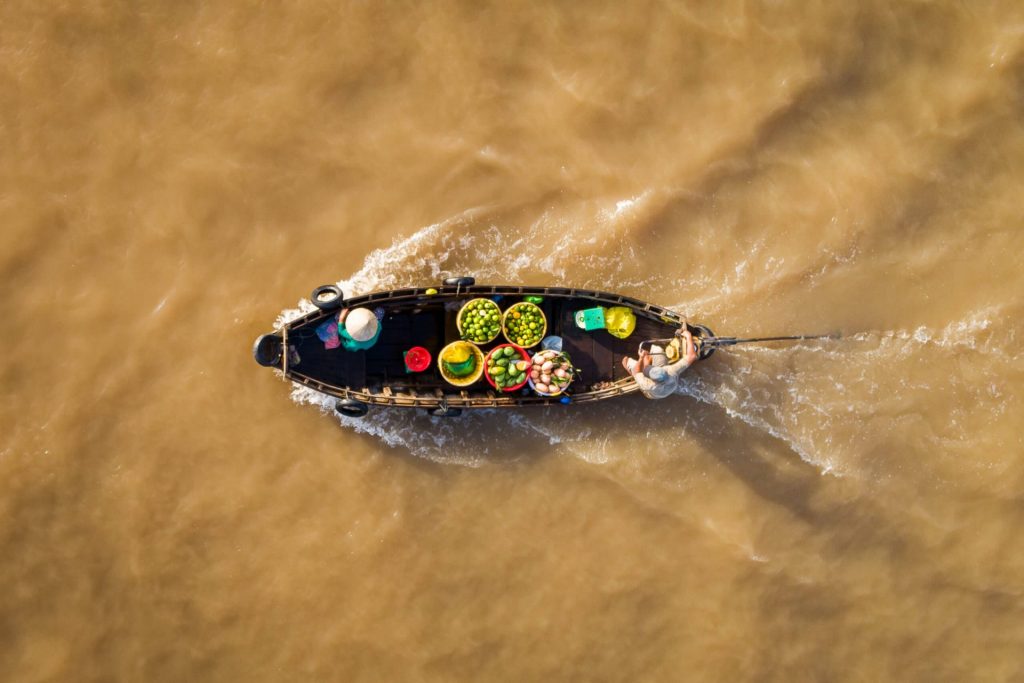heading
PROJECT: GOVERNANCE, ACCOUNTABILITY AND LEARNING FOR WATER SUSTAINABILITY (GOAL-WATERS)Viet Nam
Empowering the Mekong Delta Integrated Master Planning with traditional and local water management knowledge, practices and perspectives.

The main goal of the GoAL WaterS project is to enhance local water governance in the Mekong Delta of Viet Nam.
Challenge
Climate change impact
The Mekong Delta is the most vulnerable region of Viet Nam, and one of the top three mega deltas most likely to be severely affected by global climate change. Despite the proactive roles of localities and the government, the region is no longer benefitting from their business-as-usual water governance strategies.
The Delta is currently under pressure because of sea-level rise, coastal erosion, land subsidence due to excessive groundwater abstraction, and saline water intrusion – all of which have adverse economic consequences. In addition, the delta ecosystem is severely affected by increased temperatures and annual average precipitation, changing river flow patterns, increased flood frequency, and prolonged droughts.
Development impact
The complex upstream development, coupled with climate change impacts, is negatively affecting the population downstream, whose socio-economic activities are highly dependent on water resources. Transboundary developments, in particular upstream hydropower projects, have further aggravated stress on land and water resources.
The projected increase in population, coupled with urbanization and economic developments, will put additional pressure on the delta’s resources.
Master Plan obstacles
The current consultation process for designing the Integrated Master Plan does not take the role of local communities and governments into consideration. In fact, there are gaps in the planning process for the development of effective, equitable, and sustainable local water governance systems in the region.
The UNDP and development partners have identified this as an obstacle to the formulation and implementation of the long-term Integrated Delta Master Plan.
Strategy
The strategy focuses on improving the understanding of local water governance systems, their success and pitfalls, and on exploring their relevance in the future.
It will identify specific options for UNDP and partners to actively enhance local water governance participation in the policy development process led by MPI in the context of the Mekong Delta Masterplan.
Action points:
- Organize current and proposed alternatives to local water governance practices in the Mekong Delta.
- Assess the effectiveness of local water governance practices in a set of future scenarios.
- Identify practical recommendations to enhance local roles in water governance.
Achievements
The results of the project will be documented in an integrated report suitable for publication and presented to the technical team of MONRE, MARD and MPI, who are responsible for the formulation of the Delta Master Plan. The results will also be shared at the high-level Mekong Delta Forum.
Recommendations will highlight the key entry points for the development of an institutional framework.
Other achievements include the consolidation of a scenario-based framework for assessing local water governance practices in the Mekong Delta; a synthesized report including three thematic reports submitted for each of the socio-ecological zones; a short-page policy brief; and several workshops to present the results to key policy makers.
